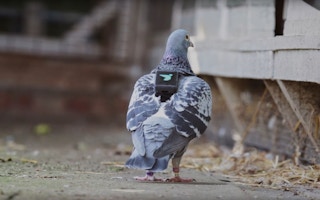London Mayor Sadiq Khan has revealed that the city’s new Ultra Emission Zone (ULEZ) could be introduced as early as 2019, as the UK’s capital aims to further reduce the air pollution its citizens are subjected to.
To continue reading, subscribe to Eco‑Business.
There's something for everyone. We offer a range of subscription plans.
- Access our stories and receive our Insights Weekly newsletter with the free EB Member plan.
- Unlock unlimited access to our content and archive with EB Circle.
- Publish your content with EB Premium.
The majority of cars, motorcycles, buses, minibuses, coaches, vans and heavy goods vehicles (some specialist vehicles will be exempt, further details here) will need to meet previously agreed exhaust emission standards when travelling through the ULEZ or be subjected to a daily charge to complete their journey. This will be the case 24/7 and be applied even through weekends and public holidays.
While we wait for the ULEZ to arrive across London, vehicle hire specialist Northgate has devised a more unique way to tackle air pollution in the city right now — the Pigeon Air Patrol.
The Pigeon Air Patrol is an idea thought up by technology company Plume Labs and created through their partnership with DigitasLBi and support provided on behalf of industry partner Twitter.
Pigeons situated in London carry personal air quality monitors within small and lightweight backpacks for the initiative. These monitors constantly measure levels of nitrogen dioxide, ozone and other volatile compounds as the birds fly across the city.
Results from these monitors can be viewed on the official website for the Pigeon Air Patrol project, although residents also have the opportunity to Tweet @PigeonAir in order to receive an automated response to the air quality in a requested area in London.
Those concerned about the welfare of the pigeons used for the Pigeon Air Patrol scheme should take note that the backpacks used for the initiative are designed to be as light as a feather.
Furthermore, Plume Labs have vets on hand to thoroughly check that the birds are always safe and sound.
With the initiative in place, Londoners have the opportunity to easily track air pollution from street to street in boroughs across the UK’s capital.
The campaign is also intended to catch the eye and draw attention to air pollution in London in a way that isn’t entirely scientifically focused.
London’s air pollution problem indeed does need to be addressed, especially if two studies are anything to go by. Back in January, analysts at CityLab pointed out that the city only needed seven days in order to breach the pollution limits that were set by the EU for the whole of 2016. Then there’s the alarming statistic by the Mayor’s office, which suggests that air pollution can be held accountable for the premature deaths of between 11,000 and 12,000 residents in London on an annual basis.
There have already been plenty of positive reactions to the Pigeon Air Patrol. Project developer Pierre Duquesnoy and Matt Daniels were presented with a London Design Festival award for the idea in 2015, for instance, while the project was named the Public Life Winner 2016 at the BIMA Awards.
The fact that the initiative has resulted in more than 2,000 news stories being generated across the globe and created more than 667 million impressions, also demonstrates the huge interest that this idea has gained in such a short timespan.
Lee Dover is a freelance journalist. This article was written exclusively for Eco-Business.











